Key Takeaways:
- Hidden hearing loss refers to an individual with audiologically normal hearing but who report difficulty and struggle with speech in noise.
- Some potential contributors to hidden hearing loss include: noise exposure, aging, and certain (ototoxic) medications.
- More sophisticated testing is required to evaluate an individual's speech perception in noise ability as well as ruling out auditory processing disorder.
- Communication strategies, especially avoiding or reducing background noise, can help reduce frustration and improve understanding with less listening effort.

Sometimes patients with normal hearing come into the office and describe hearing difficulty. For example, a patient came in recently and explained how she was straining to hear conversations in noisy environments. You might be wondering how it can be that someone with normal hearing can struggle to hear. As an audiologist, I know an audiogram tells only one part of the story. Research is working to understand more about "hidden hearing loss,” also known as a hearing difficulty that doesn't appear on a typical audiogram.
In this article, we'll discuss hidden hearing loss and its causes, how it can be tested, diagnosed, how to explain it to others, how it relates to ADHD and APD, plus helpful treatment options.
What is hidden hearing loss?
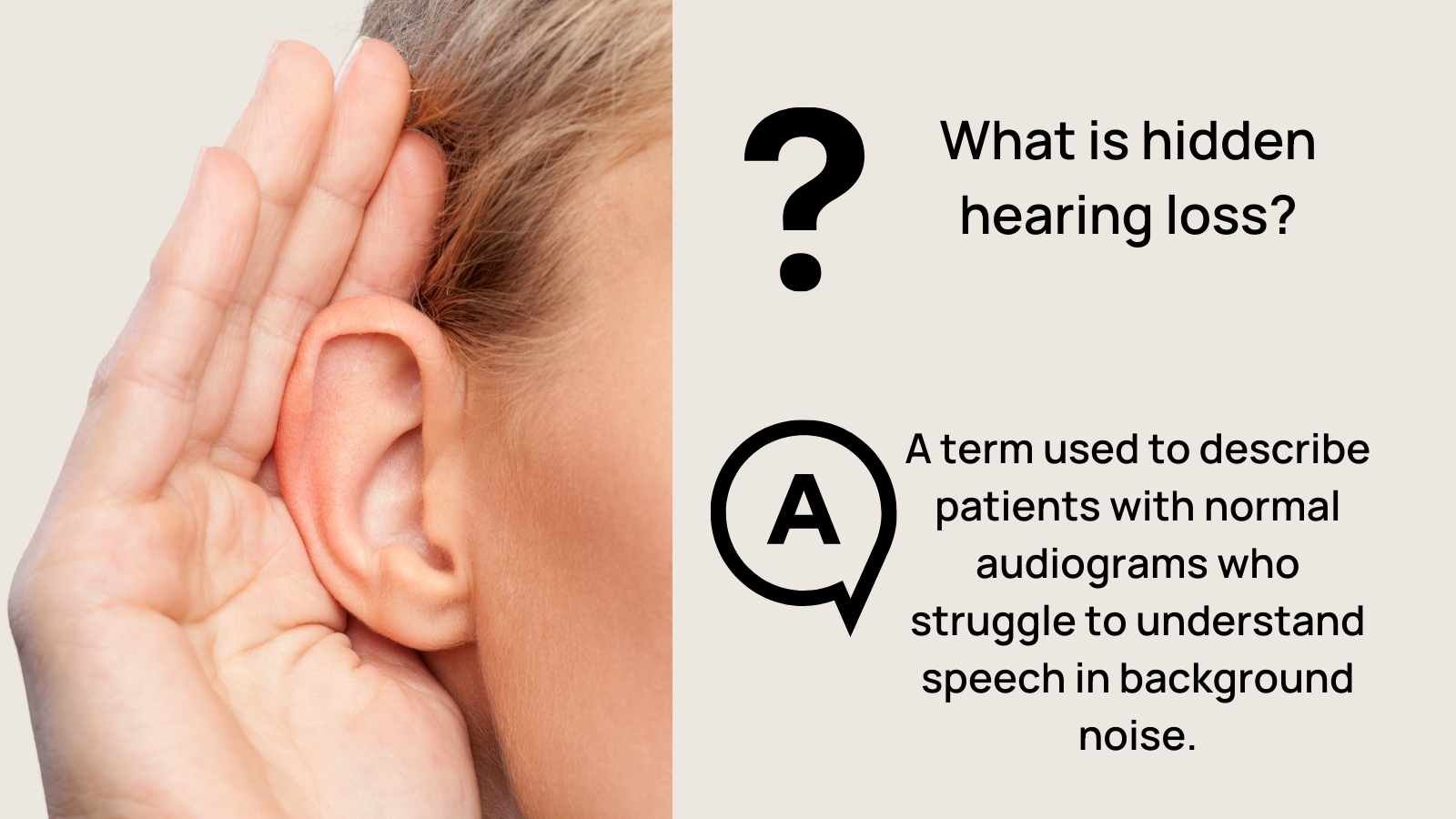
Hidden hearing loss is a term used to describe patients with normal audiograms who struggle to understand speech in background noise. Researchers are currently investigating where precisely in the auditory pathway the damage occurs. However, a working hypothesis is that damage occurs higher up in the pathway, beyond the hair cells in the cochlea. Cochlear synaptopathy is a term that describes the damage that can occur to the synapses in the spiral ganglion; in other words, damage to the nerve fibers.
What causes hidden hearing loss?
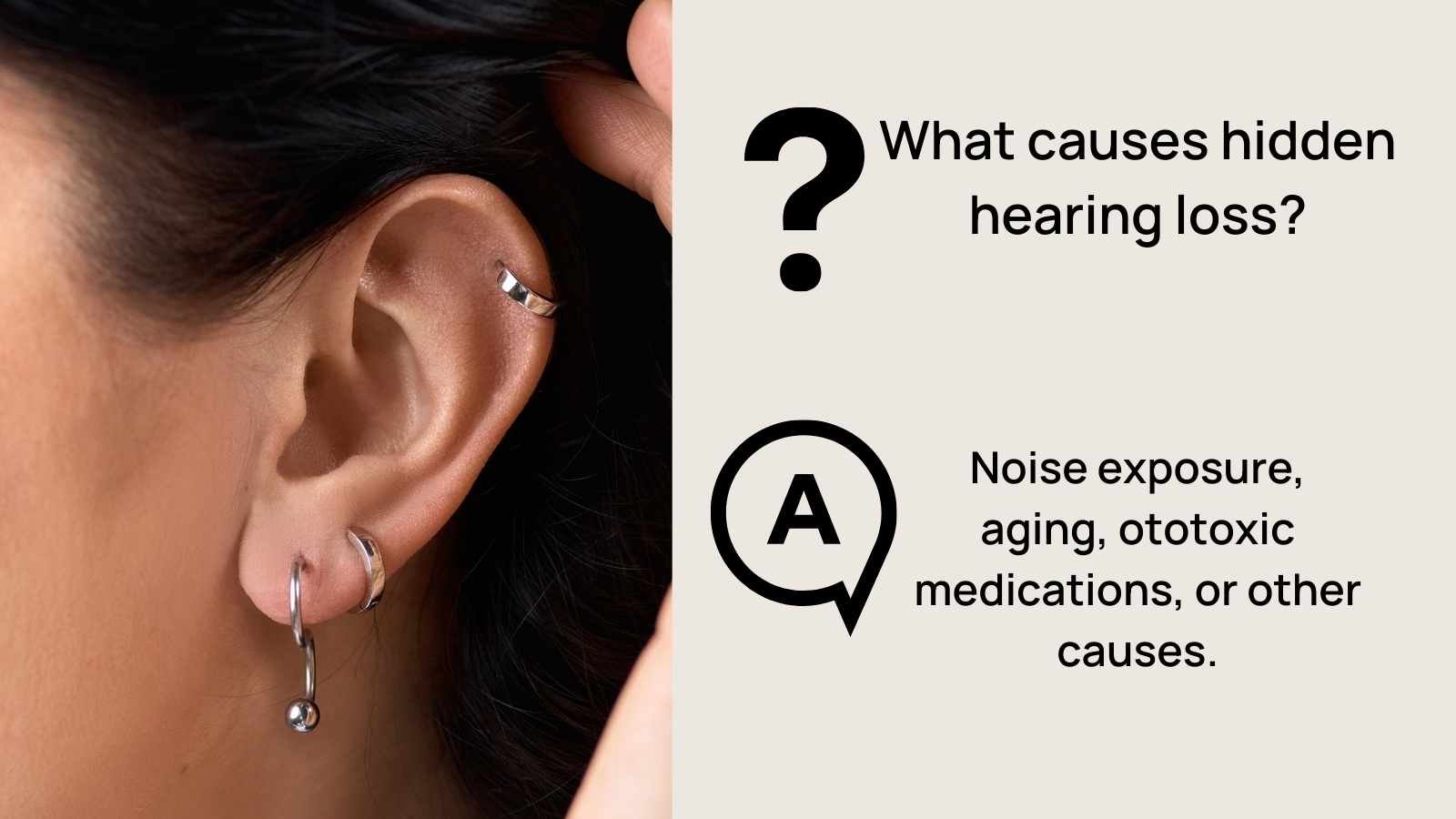
The most common causes of hidden hearing loss are noise exposure, aging, ototoxic medications, or other causes. Damage from any of these causes contributes to damage between the inner hair cells and areas of cochlear nerve fibers, which disrupts communication to the brain. For example, have you noticed that your hearing felt muffled after attending a concert? This muffled hearing may subside within 48 hours after the damage as the hair cells in the inner ear recover. However, damage can still occur elsewhere in the auditory pathway. The result? While soft sounds are audible, supra-threshold sounds in noisy environments are challenging to process and decipher.
Tests for Hidden Hearing Loss
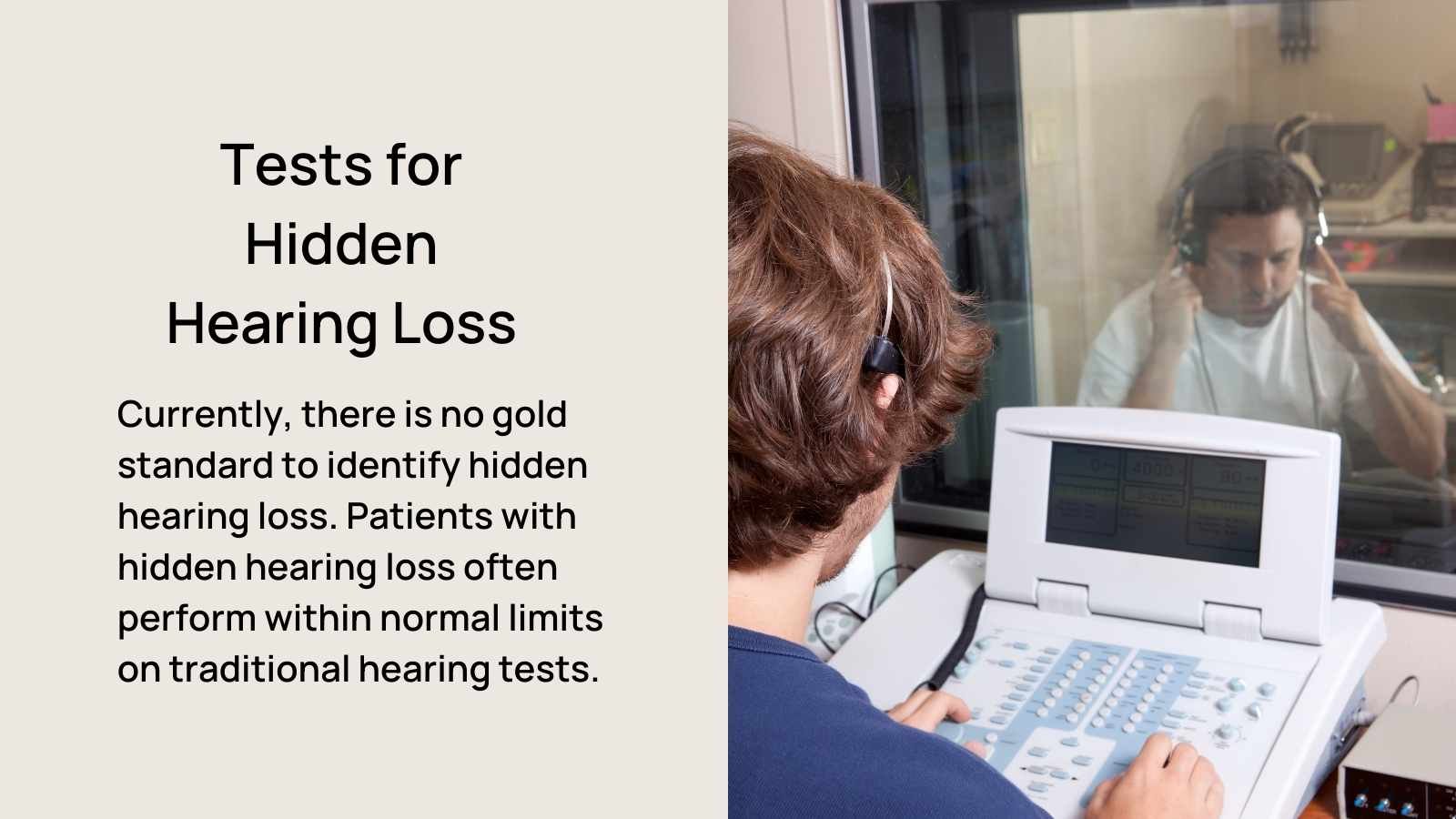
Currently, there is no gold standard to identify hidden hearing loss. Conventional audiology tests are not sensitive to hidden hearing loss, as traditional hearing tests evaluate the softest sounds you can hear and how well you can understand words in quiet. Patients with hidden hearing loss often perform within normal limits on these tests. With this in mind, speech in noise testing may reveal more hearing difficulty than expected for a normal-hearing individual.
Additional objective testing may also reveal abnormal results. For example, an auditory brainstem response (ABR) test measures electrical activity in response to sound and may reveal delayed response or unusual morphology. A distortion product otoacoustic emissions (DPOAEs) test measures the health of the outer hair cells by recording their responses to sounds played in the ear. These tests can help identify auditory dysfunction despite a normal audiogram.
How To Explain It To Others
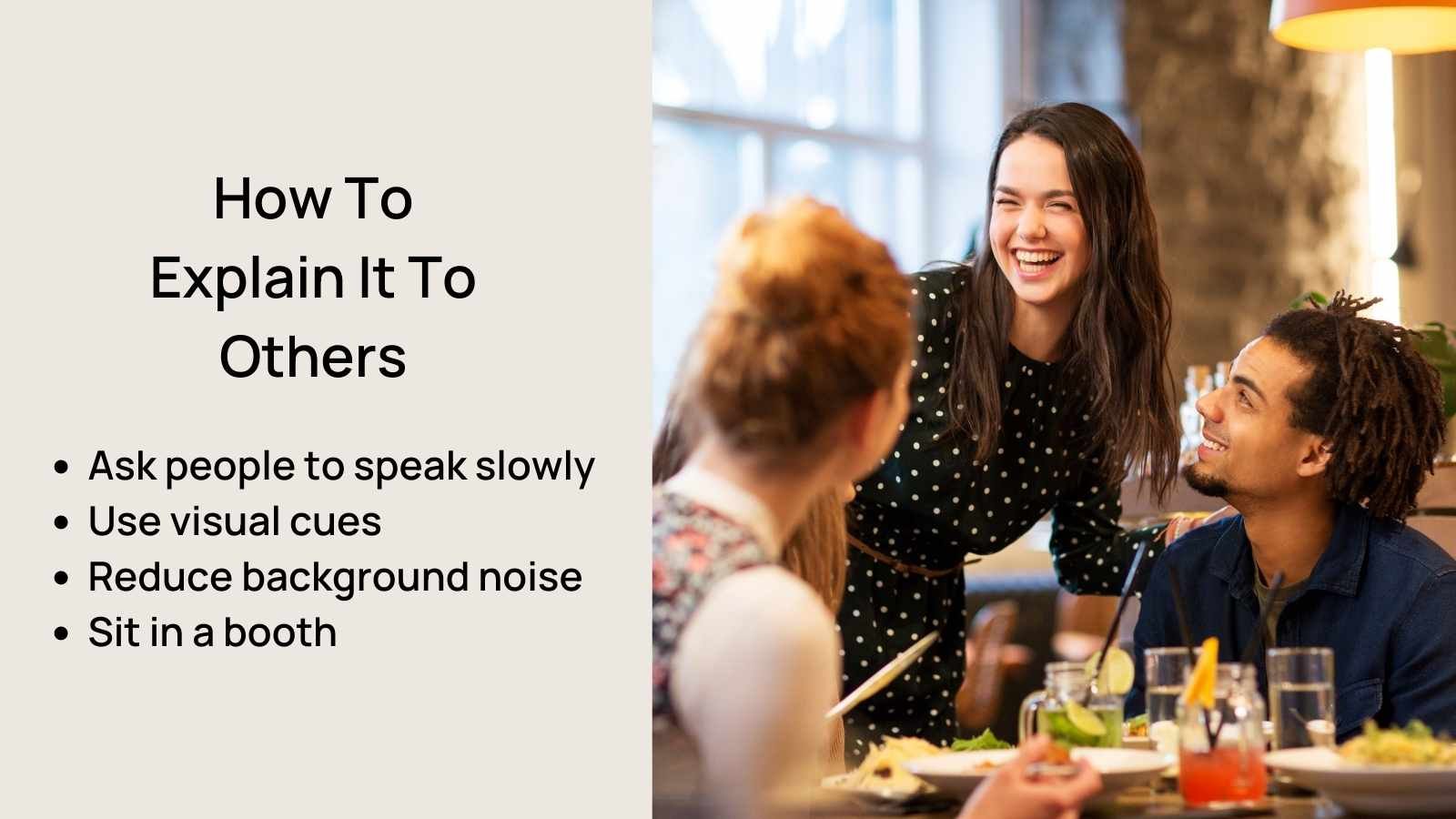
To explain hidden hearing loss to others, focus on situations when you have the most difficulty and communication tips that can help. Background noise is challenging for everyone.
However, people may assume that a normal audiogram means understanding is manageable. Let your friends and family know that you struggle with background noise. Here are some tips that can help:
- Reduce background noise when possible
- Utilize visual cues
- Ask people to speak slowly and clearly
- In a restaurant, choose a booth and sit with your back to the wall
Hidden Hearing Loss Versus ADHD and APD
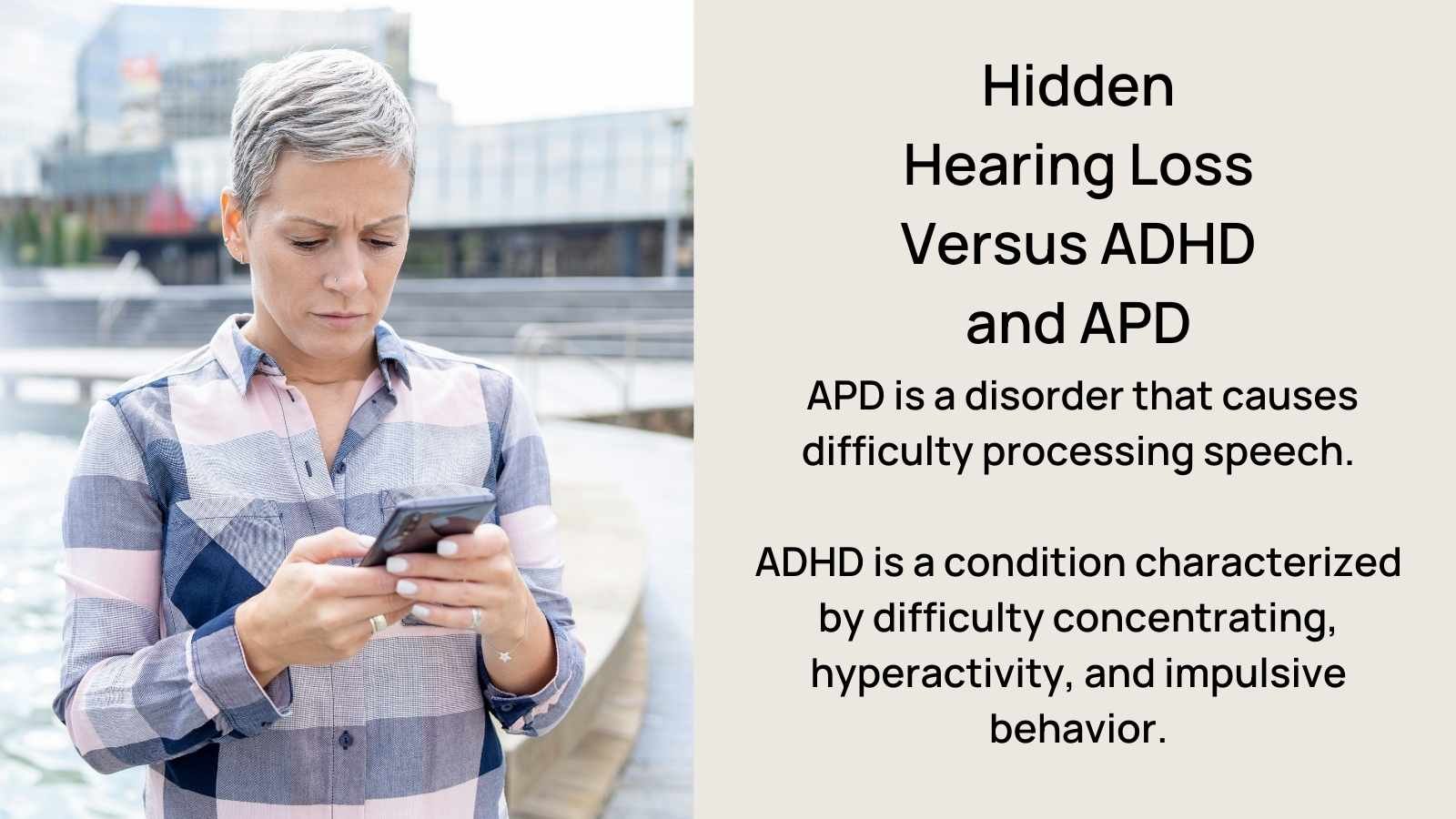
Understanding speech is more than just hearing; speech understanding can be affected by concentration, attention, mood, or other conditions that affect processing. Additionally, it's important to distinguish between hidden hearing loss and Attention Deficit Hyperactivity Disorder (ADHD) or Auditory Processing Disorder (APD) since both conditions can cause difficulty concentrating on conversations in noisy environments but have different underlying causes and treatments. A physician or psychologist can assess ADHD, and this specific neurodivergence is often characterized by difficulty concentrating, hyperactivity, and impulsive behavior. To this end, APD is a disorder that causes difficulty processing speech and is a diagnosis of exclusion. Treatments for each of these conditions will vary. ADHD may involve behavioral therapy and medication, while APD may involve auditory training, communication strategies, or hearing devices to improve the signal-to-noise ratio.
Moreover, concentration and attention can also be affected by mental health. If you are experiencing changes in your mood, it's essential to talk with your doctor and get the help you need. Stressful life events can cause a "mental noise" and make concentrating, processing, or focusing hard.
Treatment Options

The primary treatment option for hidden hearing loss includes communication strategies or hearing technology. You can read more about communication strategies that will help here. Another option for those with normal hearing who struggle is to use a hearing aid with mild amplification or a remote microphone to help reduce the signal-to-noise ratio. These devices may help people with hidden hearing loss better understand speech even in noisy environments; however, not all individuals with hidden hearing loss find this helpful approach. Interested in trying amplification? Monitor benefits during your trial period and return the devices if they are not providing appropriate benefits. Try AirPods or a pair of Sennheiser Conversation Clear to help understand speech in noise.
How to get started?
If you're having hearing difficulty, the best place to start is with a hearing test to rule out hearing loss. From there, an audiologist may recommend further testing or refer you to another professional to help rule out other medical conditions. Make sure to discuss any medical concerns with your physician.
Conclusion
Hidden hearing loss can be difficult for those affected because it differs from sensorineural hearing loss or other common types of hearing loss. Therefore, it is essential to have a proper evaluation to rule out other contributing factors, such as auditory processing disorder, ADHD, depression, or anxiety. While research is still learning more about hidden hearing loss, some strategies, and options can help.






